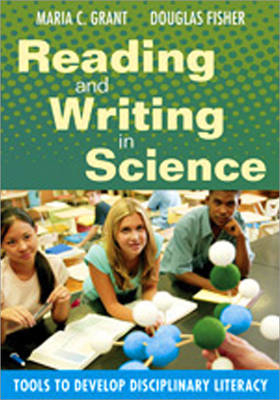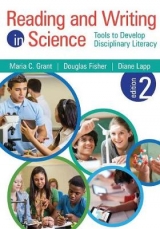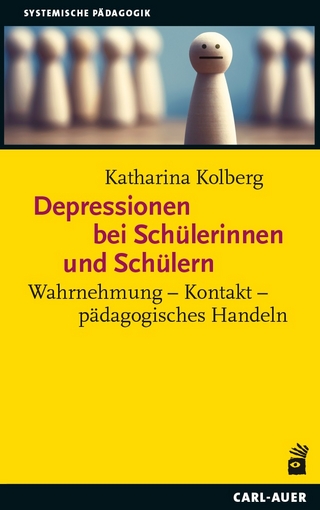
Reading and Writing in Science
Corwin Press Inc (Verlag)
978-1-4129-5614-7 (ISBN)
- Titel erscheint in neuer Auflage
- Artikel merken
Coauthored by a science educator and a literacy expert, this book offers science teachers a collection of research-based literacy strategies to help students develop science vocabulary, comprehend science textbooks and other reading materials, and engage in writing assignments that lead to better understanding of science content.
To help teachers enhance and deepen science content learning, Reading and Writing in Science: Strategies to Develop Disciplinary Literacy includes science-specific examples to illustrate the teaching strategies. The authors also provide structures for scaffolding textbook access, ways for teachers to expand literacy in the classroom through the use of trade books, and methods for assessing student learning.
Maria C. Grant, EdD, is a professor in the Department of Secondary Education at California State University Fullerton and the director of the Single Subject Credential Program at CSUF. She works with both pre-service and in-service teachers in the credential program and at school sites. Her work includes research and publications in the areas of disciplinary literacy, literacy in the content areas, science education, and pedagogy. In addition to her efforts at the university, Maria’s experience includes many years of teaching in high school and middle school science classrooms. She has taught physics, oceanography, coordinated science, chemistry, and earth science. She currently supports learners as teacher and coach at Health Sciences High & Middle College. Over the years, Maria has acted as a leader in curriculum development and professional development at both the school and district levels. Her most recent efforts include research and professional development work centered on reading, writing, and language within content classrooms. Maria can be reached at mgrant@fullerton.edu. Follow her on twitter at @mgrantfullerton Douglas Fisher is professor and chair of educational leadership at San Diego State University and a leader at Health Sciences High and Middle College. Previously, Doug was an early intervention teacher and elementary school educator. He is a credentialed teacher and leader in California. In 2022, he was inducted into the Reading Hall of Fame by the Literacy Research Association. He has published widely on literacy, quality instruction, and assessment, as well as books such as Welcome to Teaching, PLC+, Teaching Students to Drive their Learning, and Student Assessment: Better Evidence, Better Decisions, Better Learning.
Preface
Acknowledgments
About the Authors
1. The Role of Language in Science
Learning Is Based in Language
Using Language in Science
2. Developing and Activating Background Knowledge
Why Background Knowledge Is Important
Determining Relevant Background Knowledge
Demonstrations: Understanding While Seeing
Anticipation Guides: Looking for Misconceptions
Bridging the Gap When Background Knowledge Is Scant
ReQuest: Teaching Apprentices to Question
DR-TA: Predicting as a Key to Scientific Reading
QAR: Connecting Questions With Answers
The Background Knowledge Big Picture
3. Integrating Vocabulary Instruction Into the Science Classroom
The Importance of Vocabulary
Vocabulary Self-Awareness Charts
Content Area Word Walls
Instructional Routines Useful for Developing Vocabulary
Semantic Feature Analysis: Assessing Relationships Between Words
Word Cards: Investigating Examples and Non-Examples
Semantic Mapping: Visualizing Word Relationships
Fostering Independent Word Learning in Science
Word Play Promotes Increased Vocabulary Knowledge
Vocabulary Helps Students Understand Science
4. Reading Science Texts
Helping Students Read Science Texts
Read-Alouds Support Student Learning
Shared Reading Defined and Implemented
The Benefits of Shared Reading
Releasing Responsibility to Students
Facilitating Collaborative Learning
ReQuest: Reading With Questions
Reciprocal Teaching: Practicing What Good Readers Do
Incorporating Independent Practice
Why Teach Reading in Science?
5. Writing in Science: Scaffolding Skills for Science Students
Writing Like a Scientist Is Different
WebQuest: Collecting Data to Write
Writing Frames: Scaffolding for Scientific Writing
Teaching Scientific Phrasing
Writing Formats in Science
Why Learn to Write Like a Scientist?
6. Assessing Student Learning in Science
The Purpose of Assessment in Science
Using Assessment Information
Identifying Specific Students′ Needs
Creating Science Assessments
Types of Assessments Useful in Science
Final Thoughts About Assessment
References
Index
| Erscheint lt. Verlag | 12.1.2010 |
|---|---|
| Verlagsort | Thousand Oaks |
| Sprache | englisch |
| Maße | 177 x 254 mm |
| Gewicht | 260 g |
| Themenwelt | Schulbuch / Wörterbuch |
| Sozialwissenschaften ► Pädagogik | |
| ISBN-10 | 1-4129-5614-5 / 1412956145 |
| ISBN-13 | 978-1-4129-5614-7 / 9781412956147 |
| Zustand | Neuware |
| Haben Sie eine Frage zum Produkt? |
aus dem Bereich



